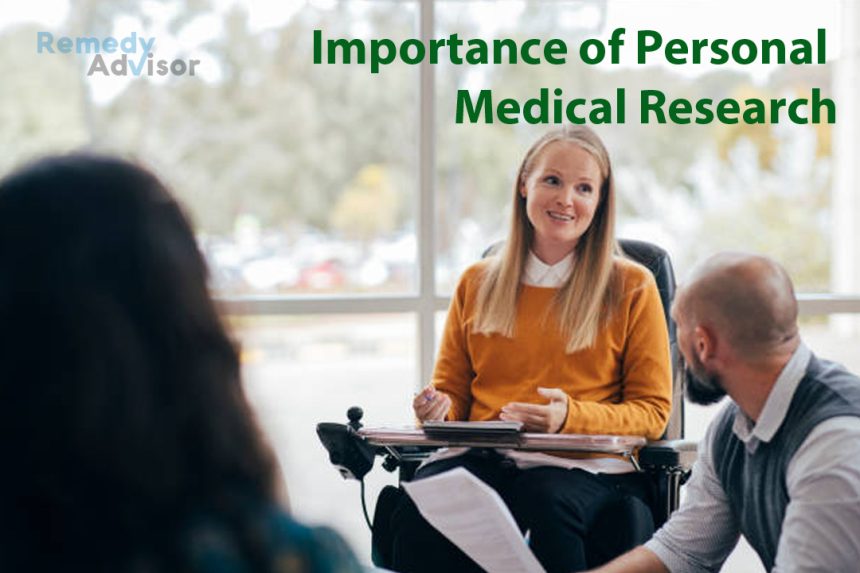If you’ve been diagnosed with a serious or chronic medical condition, how can you be sure to get the best possible care? In the past, patients often depended on their doctors to devise the best treatment plan. Unfortunately, that’s no longer prudent…
- Medical knowledge is changing so rapidly that few doctors can keep up. Each month, several hundred articles are published in medical journals about cardiology alone.
- Your doctor may be biased toward certain treatments because of his/her training. Surgeons tend to favor surgery. Internists tend to recommend pills.
- Your doctor may decide not to recommend a costly therapy because of cost-cutting pressure from an HMO.
The truth is that you may never find out about a treatment that could cure you unless you do your own medical research.
Example I: A woman with a brain tumor was told by her doctor that her only option was surgery, which could leave her partially paralyzed. She contacted a support group and learned of a noninvasive alternative called the “gamma knife,” a form of radiation therapy. Five years later, she’s completely healthy.
Example II: Doctors told a woman with non-Hodgkin’s lymphoma that her chances of survival were slim. Then her mother read about clinical trials of an extra-high-dosage form of chemotherapy known as CHOP. The woman has now been symptom-free for more than a year. Doctors say her prospects are excellent.
Research services
If you’re low on time or energy and don’t mind paying for medical information consider using a research service. For a fee of $150 to $400, such services will scan huge medical databases and assemble a bound report containing copies of relevant articles.
Doing your own research
People are usually happy with the reports they obtain from these services. But by paying someone else to find out about their disease, they’re missing out on self-education a process many people find empowering.
Patients find that actively doing their own research helps allay their anxiety, making them feel hopeful instead of hopeless and helpless.
Good news: Doing sophisticated medical research has become easier than ever before. If you own a computer with a modem, you can do much of your work from home.
If you don’t own a computer, see if you can use one at your local public or medical school library.
• Read about your ailment in consumer health guides
Look it up in Mayo Clinic Family Health Book (Collins), The American Medical Association’s Family Medical Guide (Wiley) and The Merck Manual (Merck Publishing Co.). If you have trouble deciphering medical terminology, pick up a copy of Mosby’s Medical Dictionary (Mosby).
• Search out top specialists
If you have a serious ailment, odds are your family doctor will urge you to see at least one specialist. But many doctors are obligated to refer you to a specialist whose name is on a list provided by an insurance company. This might not be the most highly skilled specialist.
Self-defense: Ask your doctor, “If this were your problem, whom would you consult?” As you contact the various experts, ask them the same question.
• Put powerful databases to work for you
Hundreds of health-oriented databases have been compiled by research facilities and libraries around the country.
The best is the online medical database provided by the NLM at www.nlm.nih.gov. Medline contains references and abstracts from 4,600 medical journals.
Also on the NLM Web site, you’ll find Medline Plus for information on hundreds of diseases, conditions and wellness issues. Drug information, online medical dictionaries, a medical encyclopedia and links to other government health resources are available.
You can also do a search using Index Medicus. This vast printed index lists the same journal articles as Medline. It’s available at most medical libraries
• Focus on the latest research
Pay special attention to review articles. These summarize state-of-the-art treatments. They give a great overview and are usually written by top experts.
Note where these experts are, and contact them. If you have trouble getting through on your own, ask your doctor to arrange a consultation for you.
If you’re using a print source like Index Medicus, look for articles whose titles contain the words “Current Trends,” “Current Status” or “Review.”
• Look into clinical trials.
The National Institutes of Health (NIH) acts as a clearinghouse for information on clinical trials being conducted at research facilities around the country.
Their Web site, www.clinicaltrials.gov, provides information about government funded as well as privately funded clinical trials.
• Look into alternative treatments
A good place to start is Dr. Marc Micozzi’s Fundamentals of Complementary and Alternative Medicine (Churchill Livingstone).
Beware: Some organizations listed on the Web are fronts for companies that sell rather dubious nutritional supplements.
• Seek out others who have had your ailment
They can be found via online discussion groups. Also, check out Medical Matrix at www.medmatrix.org. It lists medically oriented “newsgroups” on the Internet.







